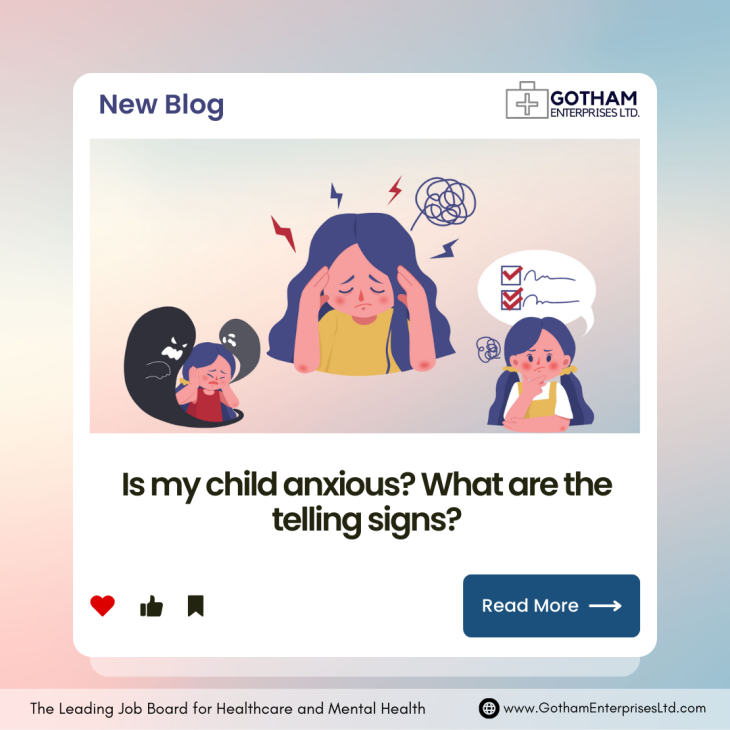Recent Posts
- I broke up with my partner, but now I am having doubts. Did I do it out of the right reasons or was I just being fearful?
- My Quick Temper Pushes People Away. What Do I Do To Manage My Anger?
- How does noise affect my mental health?
- I want to be a better problem solver. What is a step by step approach?
- Escapism. When is it healthy? When is it damaging?
Most Popular
Is my child anxious? What are the telling signs?

As a parent, have you ever had that gut feeling that something is not right, that something is going on, but you just can’t put a finger on it? Until a conversation with your child happens, the child blurts concerns and you knew you were right all along. Your child is struggling with anxiety.
It’s tough when parents realize their child is experiencing mental health issues, but they are at the forefront to help their kids.
Anxiety after the pandemic
Research shows that there was an increased risk for families to develop mental health struggles as they strive to return to pre-pandemic lives. In fact, those who had changes in their housing, financial difficulties, loneliness, relationship conflicts and pre-existing mental health challenges described that mental health of children and parents became worse.
What signs and symptoms do we look for?
Changes and feeling anxious about them is a pretty common experience, but a few people feel the aftermath of these changes longer and more intensely than others.
Behavioral and emotional changes
- Keeping away from activities that were enjoyed in the past
- Refusing to talk about school-related topics when in the past it was a welcome topic
- Becoming more irritable or angrier than usual
- Decreasing concentration or attention
- Increasing reports of misbehavior in school
Physical Changes
- Headaches, stomachaches become more common
- Decreasing appetite
- Difficulty going to sleep
Since children do not have the skills yet to describe their emotions or their troubles, they might express them through disruptive behaviors. In addition, their bodies are responding to the elevated stress through these physical symptoms. As you observe these changes more and more, you feel the need to help your child.
What can parents do after observing these changes?
- Help the child point out triggers. Becoming aware of the triggers, you and your child can work on ways to manage them.
- Listen well. When the child decides to open up to you, congratulations! It means you have been keeping communication lines open. They know that you will not prematurely judge them or talk down to them.
- Empathize. Children trust that you will not minimize their feelings. As they share, resist the urge to explain their feelings or rationalize. Just by listening actively and asking questions, you show that you empathize and understand their struggle. Another way to do this is to say that you heard them and their feelings are important to you.
Ideal home environment
The home is the safe space where children can be themselves and speak and act without fear. When a home has routines and home life is predictable, the child’s feelings of safety and security increases.
- Walk with the child. Or suggest an activity that the child enjoys. You can bond over it and give the child a chance to talk to you.
- Notice. Children naturally want to feel valued, so by asking them how they are, or verbally noticing changes you see makes them feel seen.
- Offer. Ask them if they want to talk. Express that you care and you are willing to listen.
- Healthy lifestyle. Habits such as sleeping at least 8 hours a day, eating a variety of food including fruits and vegetables, and exercising well contribute to good physical and mental health.
- Connect and recognize when to explore professional help. Connect the child with support systems that can assist the child and even the parents to access possible additional assessment and treatment. Also while you are learning the ropes in dealing with anxiety, looking for scientific online support may be reassuring.
In the beginning, it might be intimidating to be the one to assist your child in this challenging time, but parents are at the front line to detect signs and symptoms and eventually get the child the best help possible. Don’t lose hope. You are doing all you can.







Comments